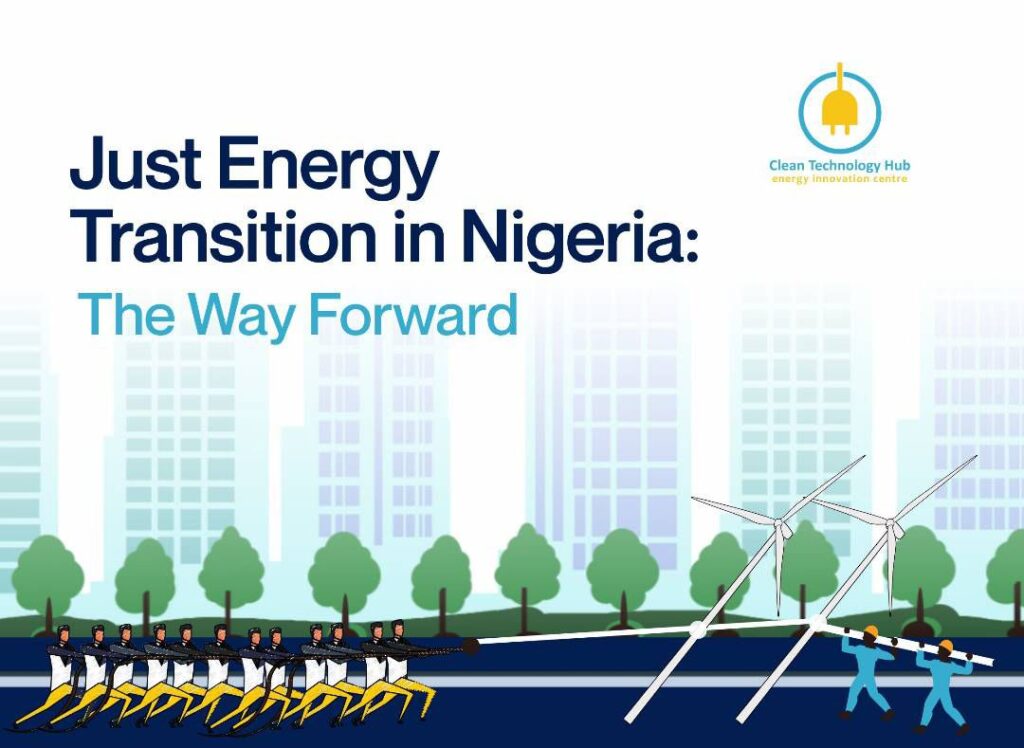
Our planet is facing a climate emergency that’s costing thousands of lives around the world. Climate change is also becoming more intense, putting millions of people’s homes and livelihoods at risk. To avoid the worst of this, societies are going to have to change massively and the reliance on fossil fuels must end. Transitioning to cleaner sources of energy also represents an opportunity in addressing these climate challenges. Energy transitions are more delicate for fossil-fuel-dependent countries (FEDCs) like Nigeria. In these countries, polluting companies will have to transform completely while some of them will have to shrink. These changes will impact the lives of workers in polluting companies and their communities, which means that job losses are unavoidable. National governments and supranational agencies can intervene with reskilling and professional training programs to generate new job prospects, starting with redeployment to renewable energy-related industries. The transition to renewables must not generate new forms of poverty and inequality.
Just Energy Transition in Nigeria
The big question in any transition is what happens to the livelihoods of the thousands of people who work in the spaces that a country is attempting to leave behind? It is in answering this question that the phrase “just energy transition” was coined.
A just energy transition is defined as a method of transitioning to a more sustainable economy that is equitable to all parties involved. Simply put, a just energy transition is a process of transitioning to a more environmentally friendly economy without displacing employees from polluting industries but rather putting in place safety nets and new opportunities for these workers. Just energy transition aims to support good quality jobs and decent livelihoods when polluting industries decline and others expand, creating a fairer and more equal society — thereby creating a “just society”
A just energy transition is about achieving decent work for all and eradicating poverty through growing inclusive economies that can meet the needs of the world’s growing population, while also protecting the environment and natural resources upon which life on earth depends.
Nigeria, as one of the world’s largest oil-producing countries, has relied heavily on fossil fuels for decades; transitioning to an economy based on little or no fossil fuels will undoubtedly result in the loss of a significant number of jobs. These losses will not only affect oil and gas companies but also companies that provide a variety of services to the oil and gas industry. Considering the largely dependent structure of Nigerian society, where one or two people in a family provide for the rest of the family and other relations, job loss will have an impact on large populations’ ability to feed, attend school, and generally survive.
Nigeria’s unemployment rate currently stands at 35 per cent. A transition without critically considering jobs would increase the country’s unemployment rate and exacerbate the crime rate and other social vices. A just energy transition is not merely an environmental or energy sector conversation; it is a governance and economic stability conversation that must occur.
The Way Forward.
The government has an important role to play in putting in place policies that commit to renewable energy (RE) and a just energy transition. This commitment will encourage oil and gas companies to invest in renewable energy skill-building initiatives. A just energy transition policy would also encourage oil and gas companies to implement just energy transition processes for employees as part of their labour law obligations.
A portion of Nigeria’s oil and gas earnings can be funnelled into a fund dedicated to funding RE-related vocational, technical, and professional training, as well as other energy transition-related programs. Green skills should also be integrated into mainstream education, and existing curricula should be overhauled urgently to accommodate the energy shift. Oil and gas businesses should retrain their employees and retool their positions. Project management, safety supervision, electrical work, and pipeline construction are all skills that can readily be transferred to the RE business.
The potential entry point for intervention to ensure a Just Energy Transition include:
- Skills identification and anticipation with a focus on renewable sources.
- Skills development targeted at new skill requirements in the traditional energy sector, including technicians required for technologies aimed at curbing gas flaring, operating double-cycle gas generators and improving energy efficiency.
- Skills development in emerging and renewable energies notably off-grid solar installers, managers and maintenance service.
It should be noted that supporting skills development will improve the supply side conditions and human capital to drive a just energy transition. In conclusion, the energy transition is similar to any other transition the world has had to grapple with, particularly the various technological advancement- the Digital transition, which we are now still adjusting to and which is rapidly rendering many jobs extinct. A just energy transition is a powerful engine for economic development and job creation. However, retooling our professions, education, and policies is the best way to achieve an energy transition that is just.


